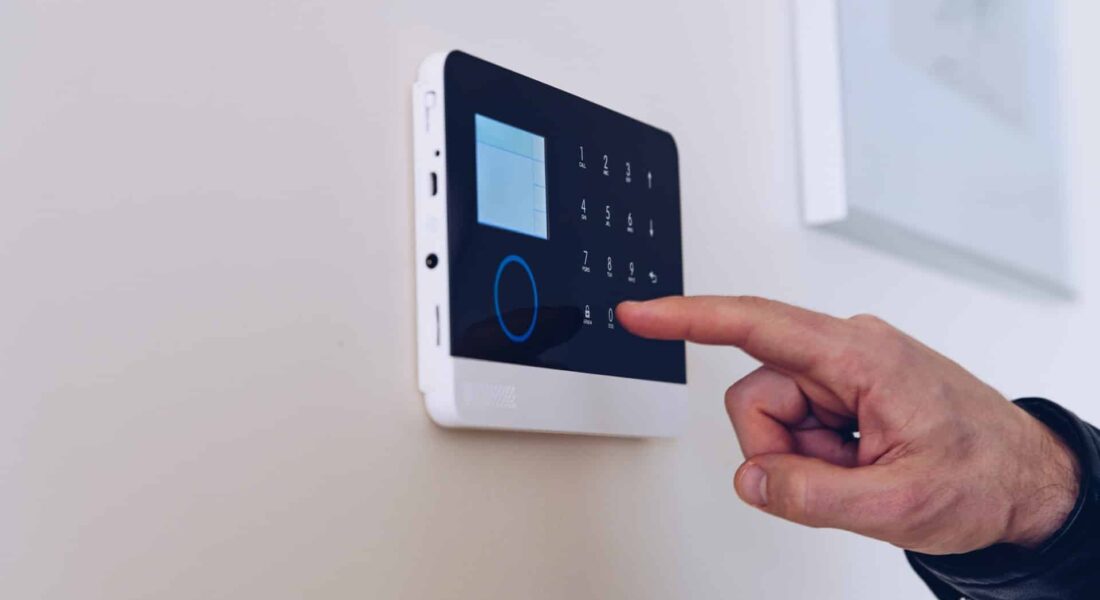Homes and businesses alike have a need for high-quality fire and security protection. If you sell these services to your clients, how can you make sure they are getting the highest level of protection? In other words, if they need help, who will respond, and how quickly will they do it?
There are two basic types of alarm monitoring services: local alarms and central alarms. Which one you choose for your clients will dictate that level of service. Here is what you need to know about the differences between local and central alarms and why it matters.
What Is a Local Alarm?
Again, there are two main types of alarm systems: local and central alarms. The two are quite different. A local alarm is the simplest system, often with a DIY installation. Each component of the system can be purchased separately, meaning clients can buy the motion sensors, window alarms, and door alarms individually.
When one part of a local alarm system is triggered, such as a motion sensor, the only people that will hear the audible sound are those inside the home or business. This might be your clients or an intruder. No notification goes out to local emergency services or law enforcement unless someone on the premises makes a call.
What Is a Central Alarm?
Central station alarms are much different than local alarms. These are professionally installed systems that are also professionally monitored. When your client’s alarm is triggered, a signal instantly goes to the central monitoring station, which is online 24/7. When appropriate, the security professional at the central monitoring station will notify emergency services or law enforcement on the client’s behalf, whether they are on the premises or not.
Major Differences Between Local and Central Alarm Services
If you are undecided about which type of alarm services to offer your clients, here are some of the major similarities and differences between local and central alarm systems.
- Local systems are usually a DIY installation, and central station systems are usually professionally installed (some can be DIY).
- Local alarm systems are not “smart” systems, but central systems are considered “smart.”
- Local alarm systems don’t offer remote monitoring, while central alarm systems send a notification to a central monitoring center and your phone.
- Either local or central alarm systems are easily customized.
- Local alarm systems do not offer professional monitoring, but central alarm systems provide this service.
Benefits of Central Alarm Services
A majority of homes and some businesses choose to install local alarm systems. On the front end, they are often less costly and seem to be an adequate option for protection. These systems deliver audible alerts of potential fires, intrusions, CO detection, and other problems. While they might be effective if someone is there to hear the alert, they certainly aren’t foolproof.
Central alarm services offer your clients much more comprehensive service. Central station monitoring services work by connecting your client’s alarm systems to an Underwriters Laboratory (UL) listed Central Station, ensuring someone is always available to respond when an alarm goes off.
The reason for the alarm might be smoke, fire, burglary, flood, or any other emergency that takes place at a home or business. Once the central station receives a notification from the security system, they take action immediately. This might involve contacting the client for permission to confirm an emergency or dispatching local authorities to the location.
Some of the most important benefits of central alarm services include the following.
Immediate Emergency Assistance
Having a central alarm system means there is a team of professionals ready to take appropriate action if an alarm is activated. These are dedicated individuals who are in compliance with various established protocols to minimize risk, get emergency assistance when needed, and give your clients peace of mind.
Round-the-Clock Coverage
The central alarm system monitoring team is on the job 24 hours a day, seven days a week. Thus, when your clients are away from home—or their commercial location is closed—there is someone available to respond to any active alarms.
Single-Stop Protection
A central alarm system offers single-stop protection for your client’s entire property from a variety of hazards and risks. Instead of having to install different systems for burglary, fire, flood, and other potential hazards, one system offers the protection and security your clients need and deserve.
Criminal Deterrent
Criminals target homes and businesses that don’t appear to have any protection or that don’t have adequate safeguards in place. They will be far less likely to choose a property that has 24/7 central alarm system monitoring since there might be video proof of a break-in and fast dispatch of police.
Insurance Discounts
Many insurance companies will offer discounts to policyholders that have security systems. If a home or business chooses a security system with a central alarm system, an insurance carrier will likely provide your client with some savings.
Who Can Use Central Alarm Services?
Just about any home or business is an ideal location for a central alarm security service. To work with one of these systems, all your client needs is wifi or a cellular connection. Common uses for these systems include the following.
- Security for homeowners — A home is the largest investment most people make in their lifetime. Central alarm stations can monitor a home 24/7 against threats like fire, flood, and CO2 poisoning. It can also dispatch EMTs in a medical emergency.
- Security for renters — Renters are a common demographic targeted by burglars because they don’t often have security measures in place, but a wireless system can be set up quickly that provides value and lasting peace of mind.
- Security for businesses — Every business needs a feature-rich security system to protect its property, safeguard workers, and ensure the long-term survival of the organization.
- Security for government — Municipalities also require robust security services. Schools, utilities, and government buildings are common targets of vandals and thieves, and a fire or flood could be costly and inconvenient for local residents.
Quick Response Offers Central Station Alarm Services to Your Clients
Now that you understand the differences between local alarms and central alarms, it’s evident that central alarm services are superior. Your home and business security clients deserve the best possible experience, which Quick Response can help you deliver.
For more than 40 years, Quick Response has been a top provider of 24/7 security monitoring services. We are a TMA five diamond certified dealer offering cloud-based surveillance solutions that benefit our clients.
When you partner with us, we become an extension of your brand. To learn more about our comprehensive central alarm monitoring services, contact Quick Response today!




